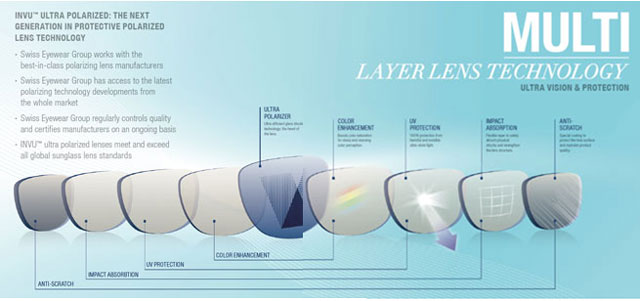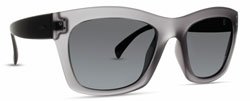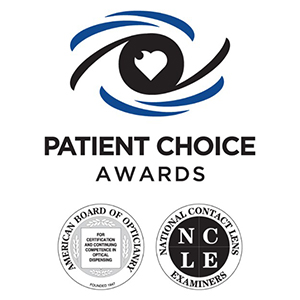
Tis the season—back to school season, that is, and by the time you’re reading this the little ones (and big ones) will have already had a few weeks in the classroom. The kids who failed their school vision screenings will all be filing through your office soon, and as the Dog Days of Summer fade into the idyll of a hopefully much more pleasant Fall, there’s plentiful opportunity for you to remind your patients about the importance of sunwear.

Sunglasses are sort of the Rubik’s Cube of optical sales. Everyone needs them, a lot of people want them, yet convincing someone to purchase a pair is oftentimes a much more complicated task than getting them to buy regular eyeglasses. There are a number of reasons, but most often (and especially in today’s tenuous economy) the biggest factor is cost; and here’s where a lack of sunwear sales becomes something of a two-way street.
Many dispensaries I’ve worked in or with have an all-or-nothing approach to sunglass sales. What’s available is either a high-end line like Maui Jim, Oakley, or Ray-Ban, or an incredibly low-cost, often low-quality budget line. No two people I’ve ever spoken to have had quite the same reasoning for this  approach, so I can’t speak to any particular mentality that drives this buying trend. Both represent an extreme of the spectrum, and give patients living on a budget little to work with. I’ve been in offices that had a full price spectrum represented in their ophthalmic lines, yet no in-between options for sunglasses. More often than not, I’ve been in offices with no budget options for sunwear—just row after row of high-end, brand name models. Where’s the in-between, though? What about offering patients a quality pair of sunglasses, either RXable or for plano use, that won’t break the bank—or break the second they leave the office?
A lab rep friend of mine, aware that I was contemplating this issue, recently introduced me to Invu Sunwear from Europa. I was intrigued by the pitch—a pair of sunglasses that are explicitly made for independent ODs and opticians to market to the middle of the spectrum—and decided to learn more about them.
approach, so I can’t speak to any particular mentality that drives this buying trend. Both represent an extreme of the spectrum, and give patients living on a budget little to work with. I’ve been in offices that had a full price spectrum represented in their ophthalmic lines, yet no in-between options for sunglasses. More often than not, I’ve been in offices with no budget options for sunwear—just row after row of high-end, brand name models. Where’s the in-between, though? What about offering patients a quality pair of sunglasses, either RXable or for plano use, that won’t break the bank—or break the second they leave the office?
A lab rep friend of mine, aware that I was contemplating this issue, recently introduced me to Invu Sunwear from Europa. I was intrigued by the pitch—a pair of sunglasses that are explicitly made for independent ODs and opticians to market to the middle of the spectrum—and decided to learn more about them.
“It’s a special lens,” says Scott Shapiro, Vice President of Europa, who was kind enough to sit down with me and President Jerry Wolowicz to discuss the line. “It was created by the Swiss Eye Wear Company out of Zurich, with imported materials out of Japan. It’s a nine-layer lens that has incredible features, especially for the price class that it’s in. Superior acuity, protection for the eye, color enhancement… The Invue Sunglasses retail for under $100. We believe very strongly the Invu lens is literally the best lens on the market for the price. The level of technology that goes into that lens is, in our opinion, unmatched for that price point.”

Aesthetically, Invu hits all of the right pop-notes, with frames recalling the sort of classic and sporty styles popular on the market now. There are the expected Wayfarer homages, a very nice oversized browline frame, and then some more original and out-of-the-box designs such as a grey translucent zyl women’s frame that allows them to have the coveted Buddy Holly/Roy Orbison look usually geared towards men. The frames come with plano polarized lenses manufactured using a nine-layer technology (see graphic). For the patient wanting a bit more, “about 90% of the frames are RXable,” says Wolowicz. In order to maintain brand integrity, Europa sought a lab capable of bringing the Invu lens to patients in need of an RX.
“Many of our customers were asking for RXable polarized lenses,” says Shapiro. “We partner exclusively with the independent eyecare professional. When we were looking for a partner to help us develop a sunwear line, we wanted one that we really felt was gonna be perfect for the independent ECP… We looked at a number of manufacturers, we decided on Hoya, and they’ve been a great partner, and they have created lenses that are similar but not exact in technology to the Invu lens.”

It’s been a sort of recurring writing thesis of mine that now more than ever honesty is a key component of an effective sale. Moral implications aside, we live in an age in which patients have unprecedented access to information about their purchases. What something is made of, where it’s made, how much it costs elsewhere—all it takes is five minutes and the smart phone a patient brought into your office to figure all of that out, and if something doesn’t sync up with what an optician is telling a patient, there’s going to be a problem. This was something else that impressed me about Invu: A frank honesty about the role of the sunglasses in a dispensary. They’re explicitly sunglasses available for a middle-of-the-road price point, geared towards patients who want and need a superior level of sun protection and visual acuity without dipping as deep into their wallets as another lens would call for. It’s a sort of humble frankness severely lacking in many industries, and which, coupled with their dedication to independent ODs, I greatly admire Europa for. While they may not be the exact thing a given OD or optician is looking for, I nonetheless encourage those interested to look into Invu as a potential alternative to high-and-low-end sunwear as we enter this (hopefully not heat-drenched) Fall. It could be the beginning of a beautiful friendship—and, for the price point, the beginning of a beautiful number of sunwear sales.

Preston Fassel was born in Houston, Texas and grew up between St. Charles, Missouri and Broken Arrow, Okla.
In 2009, Preston graduated Summa Cum Laude with a degree in Liberal Arts. In 2011, he graduated Cum Laude from Sam Houston State University with a Bachelor's of Science.
Preston currently works as an Optician in the Houston area. His interest in the history of eyewear goes back to his time in high school, when he developed an interest in all things vintage.
In addition to his writing for The 20/20 Opticians Handbook and 20/20 Magazine, Preston is a featured writer for Rue Morgue Magazine, where he reviews of horror and science-fiction DVDs. His fiction writing has been featured three times in Swirl magazine, the literary arts journal of Lone Star College and Montgomery County. He is the author of the definitive work on the life of British horror actress Vanessa Howard, Remembering Vanessa, which appeared in the Spring 2014 edition of Screem Magazine.













